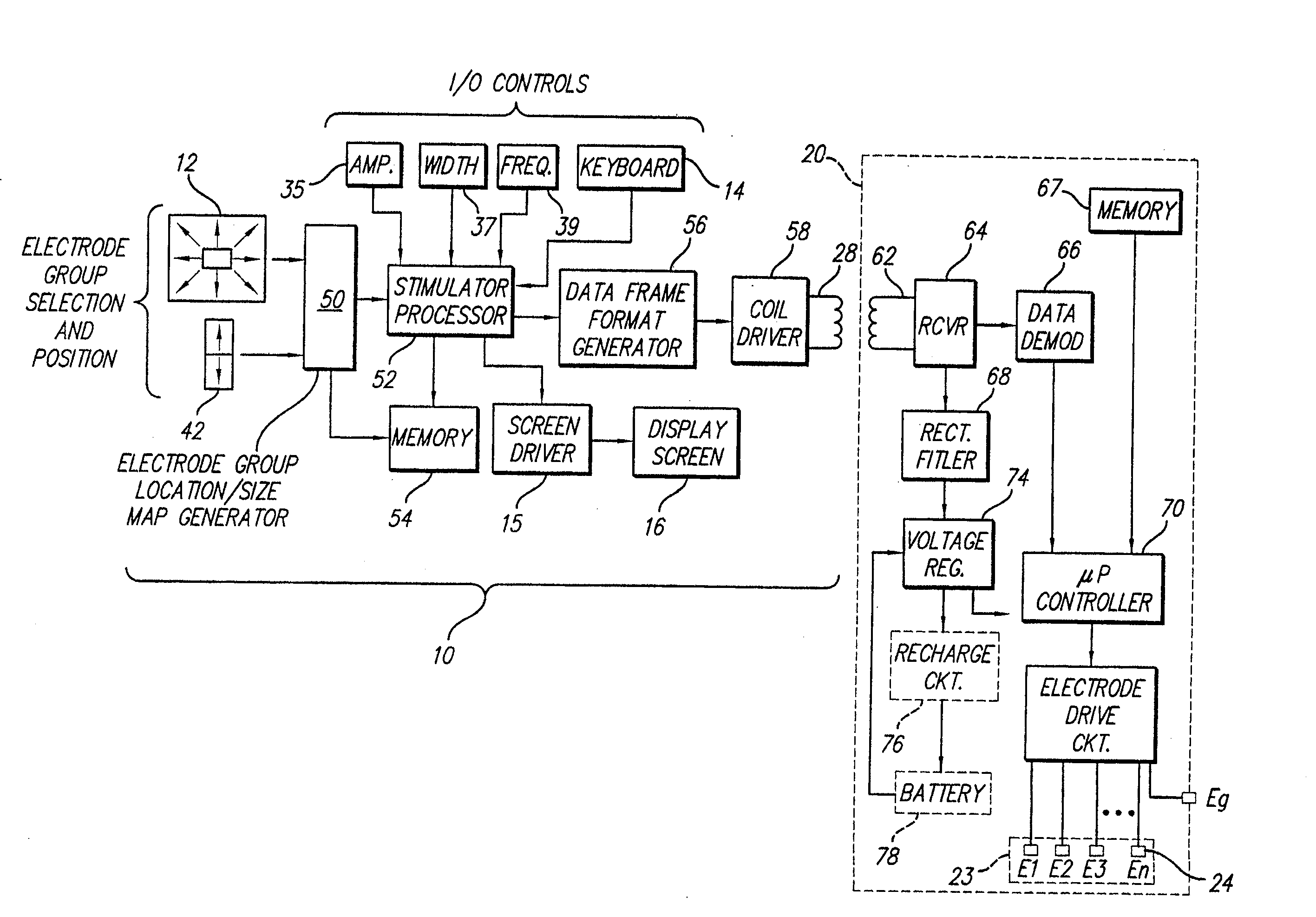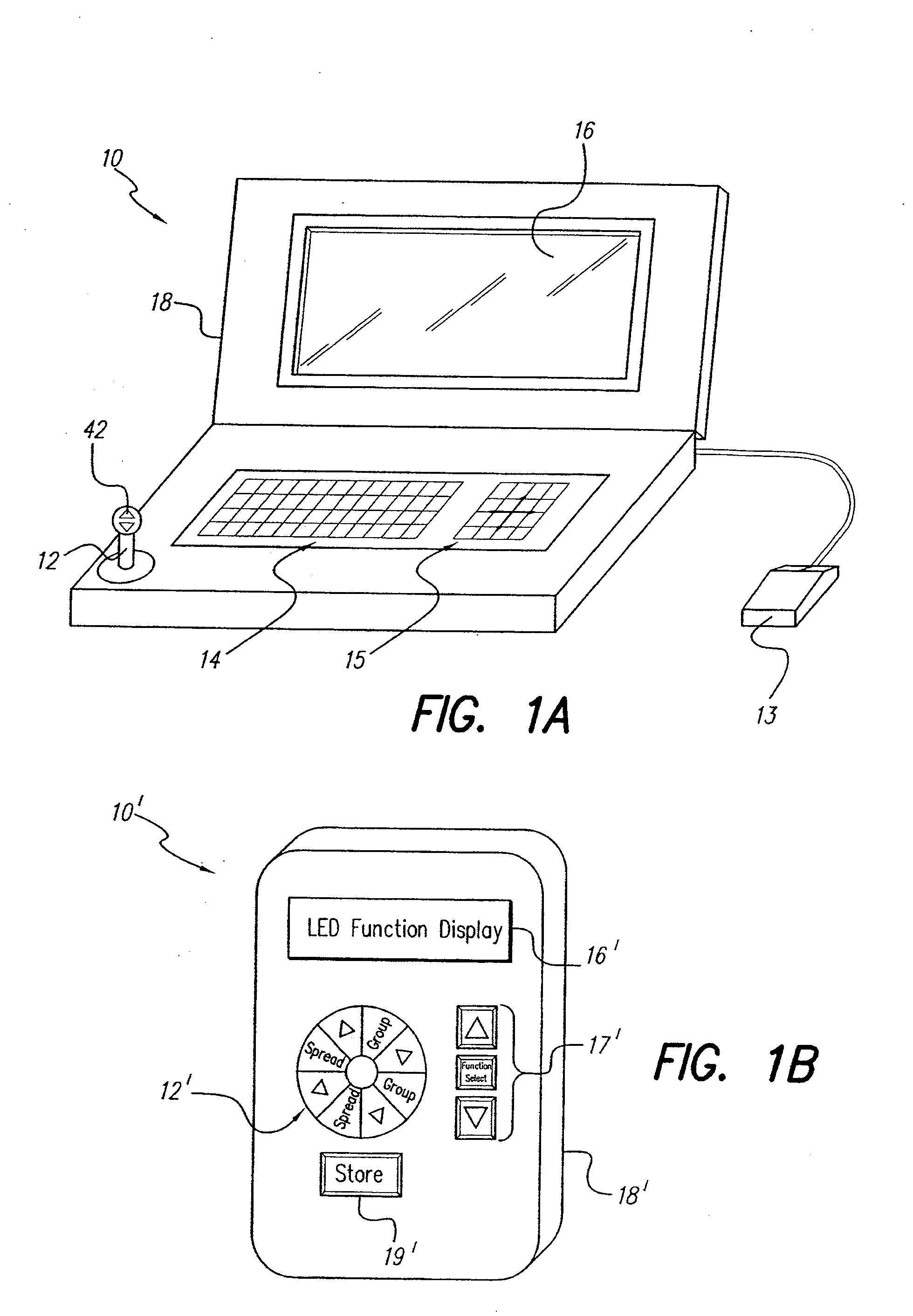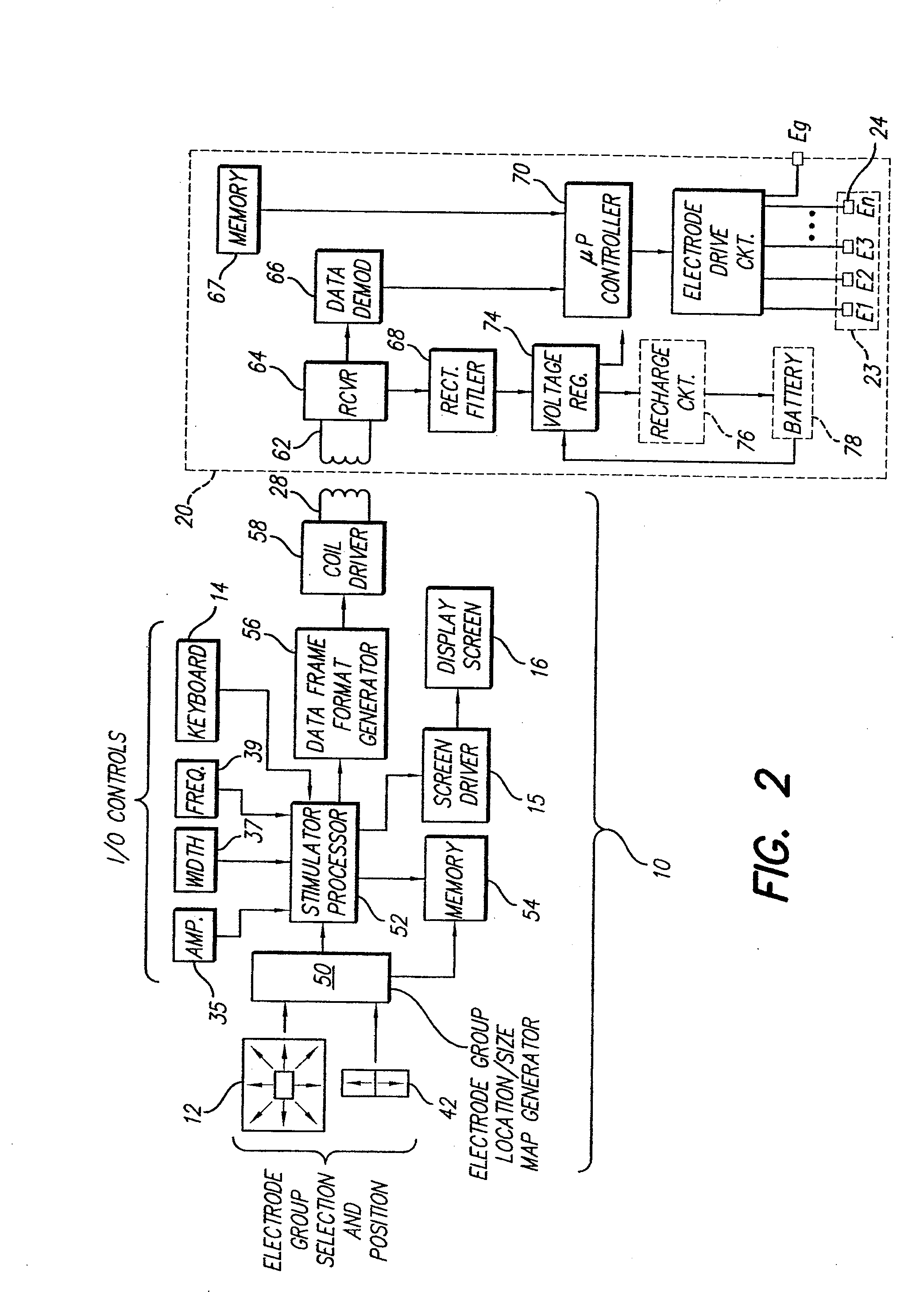System and method for displaying stimulation field generated by electrode array
a stimulation field and array technology, applied in the field of devices for programming an implantable electrode array, can solve the problems of unreasonable large number of possible combinations, unsatisfactory or uncomfortable stinging or tingling sensation felt by users, and the optimum stimulation parameters may change, so as to achieve the effect of easy neural activation, easy programming, and improved neural recruitmen
- Summary
- Abstract
- Description
- Claims
- Application Information
AI Technical Summary
Benefits of technology
Problems solved by technology
Method used
Image
Examples
Embodiment Construction
[0052]The following description is of the best mode presently contemplated for carrying out the invention. This description is not to be taken in a limiting sense, but is made merely for the purpose of describing the general principles of the invention. The scope of the invention should be determined with reference to the claims.
[0053]At the outset, it is to be noted that a preferred implementation for a directional programming device in accordance with the present invention is through the use of a joystick-type device or equivalent. Hence, in the description that follows, a joystick device is described. It is to be understood, however, that other directional-programming devices may also be used in lieu of a joystick, e.g., a roller ball tracking device, horizontal and vertical rocker-type arm switches, selected keys (e.g., directional-arrow keys) on a computer keyboard, touch-sensitive surfaces on which a thumb or finger may be placed, recognized voice commands (e.g., “up”, “down”,...
PUM
 Login to View More
Login to View More Abstract
Description
Claims
Application Information
 Login to View More
Login to View More - R&D
- Intellectual Property
- Life Sciences
- Materials
- Tech Scout
- Unparalleled Data Quality
- Higher Quality Content
- 60% Fewer Hallucinations
Browse by: Latest US Patents, China's latest patents, Technical Efficacy Thesaurus, Application Domain, Technology Topic, Popular Technical Reports.
© 2025 PatSnap. All rights reserved.Legal|Privacy policy|Modern Slavery Act Transparency Statement|Sitemap|About US| Contact US: help@patsnap.com



